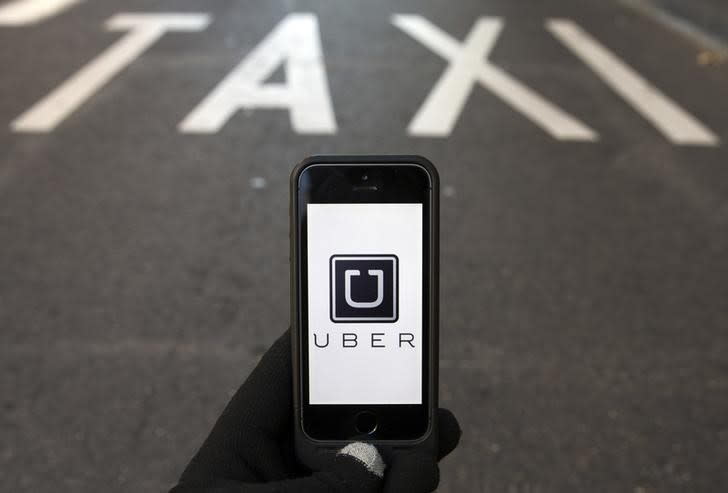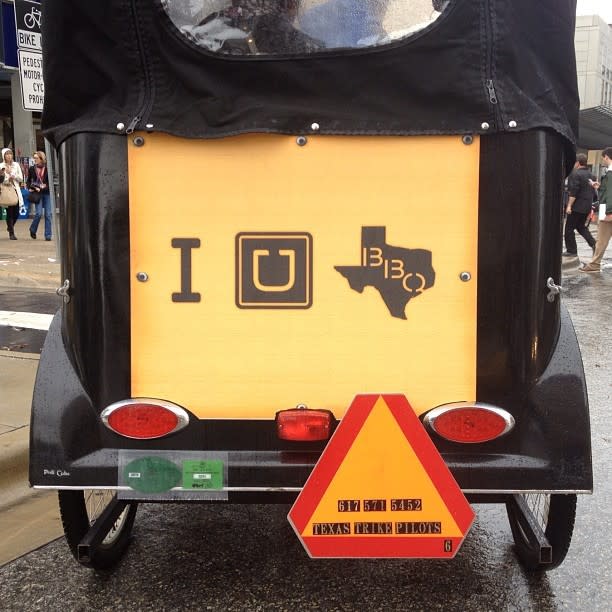Uber, Lyft Users Revolt Against New Laws In A Political Surge

America’s first-ever ridesharing-based political revolt has started in Texas—and so far, it’s been little short of a rout.
Late on a Thursday night just before Christmas, the city council in my hometown of Austin, Texas, citing questionable public-safety concerns, uncorked a surprising ordinance that would require Uber and Lyft drivers to pass mandatory fingerprint-based background checks. Crafted, at least on the surface, to protect passengers against driver assault, this ordinance was met with howls of protest from just about everyone except for the hidebound Austin taxicab industry.
Uber and Lyft threatened to pull out of the city if the ordinance got enacted. The Austin police chief and the Travis County Sheriff both decried the “onerous” regulations, saying that losing ride-sharing services would roll back recently hard-won reductions in drunk driving. And the citizens of Austin weren’t very happy either.
This week, a nonprofit group called Ridesharing Works For Austin, an odd alliance among Uber, Lyft, unemployed musicians, and downtown bar owners formed just after the New Year, submitted a petition to the city clerk’s office containing more than 65,000 signatures, demanding that the city council overturn the ordinance. They gathered those signatures in less than three weeks. Assuming that the petition passes muster—and it almost certainly will because the group triple-checked the rolls to ensure that at least 20,000 of those signatures were legitimate—the council will have to either adopt a new ordinance or put the issue up for a public election. No mayor in the history of Austin has ever received that many votes.
Uber and Lyft have been the target of dozens of demonstrations worldwide, often by taxi and limo drivers worried about their incomes, but the battle in Austin demonstrates how much popular influence ridesharing companies can hail in the political world, particularly with young voters who’ve barely known adulthood without them.

Photo: William Beutler via Flickr
For all its reputation as a liberal enclave, Austin is a surprisingly apolitical place. Its youthful residents are too busy building apps or partying to worry about civic involvement. As such, the city government has broad leeway to do what it wants on behalf of an electorate largely comprised of SUV-driving suburbanites and aging central-city NIMBY hippies still longing for the return of Stevie Ray Vaughan. In other words, the people who usually vote don’t use Uber.
But millennials do. While they may not care that mixed-use condo developments are being built atop the corpses of formerly beloved music venues, young people do like to get around. They know as well as anyone that Austin, for all its hipster charms, faces a disastrous transit situation. Voters repeatedly defeat any attempts to establish better public transportation. Meanwhile, the city’s population has exploded, and the roads are clogged and unsafe. Traffic fatalities are on the rise. Ninety-one pedestrians died in Austin last year, a number that has left authorities desperate for a solution.
Austin’s cab industry, which has actively courted political opposition to Uber and Lyft, is notoriously incompetent. It’s tough enough to get a cab downtown, but just try calling one to bring you home from an outlying neighborhood. We all have stories of waiting an hour, two hours, three hours for a cab, of walking, half-drunk, down an unlit side street to try and find a major intersection to hail some ride, any ride.
That’s where Uber and Lyft enter. No one claims that Uber is some sort of selfless player or civic savior, but when it comes to easing our transit problems even a little bit, they’re our only hope in the face of a city and state government that can’t seem to do anything else. When it comes to transportation, Texans are still trapped in a Great Society mentality where all problems can be solved by highways and the good old boys at the car dealership have your best interests at heart.
By enacting the fingerprint ordinance, the city council proved itself to be remarkably tone-deaf to the actual needs of its citizens. They still seem stunned by the outcry. As one council member said last week, “I am deeply disappointed in the perversion of the petition process essentially led by a billion-dollar company fighting fair safety regulations by disseminating false information to get signatures.”
Uber and Lyft certainly paid people to get signatures. A guy, hired by Lyft, knocked on my front door two weeks ago. But the companies aren’t the only animating force, or even the major one, behind this initiative. They didn’t have to activate their massive million-person online database. Instead, downtown bars and nightclubs circulated pages. Petitioners walked up and down Red River and 6th Street, garnering more support than any plebiscite in the city’s history. If you want to get young people to sign something, all you have to say is “they’re going to ban Uber.” Only an attempt to ban ramen would make them more upset.
Once the signatures are confirmed, the city council and mayor have ten days to roll back the ordinance. If they don’t, there will be a special election in May, which will cost the city nearly a million dollars. And if that happens, the city will be forced to choose between Uber and Lyft or the traditional taxicab industry. No result is guaranteed, but I know who I’d bet on in that fight.
Uber and Lyft are far from perfect, and they should only be a part of Austin’s overall transit solution. But they’re also the future, and for a city that continually pats itself on the back for modernity and progressivism, dumping them in favor of an antiquated cab industry would be a huge step back into the past. Uber has beaten back proposed regulations before, stopping a plan by New York City Mayor Bill deBlasio from pushing a set of new rules on its service. If the Austin vote goes as overwhelmingly against the city council as it seems now, other lawmakers will have to think twice before taking similar steps.
Now if only we could vote down surge pricing.

 Yahoo Autos
Yahoo Autos